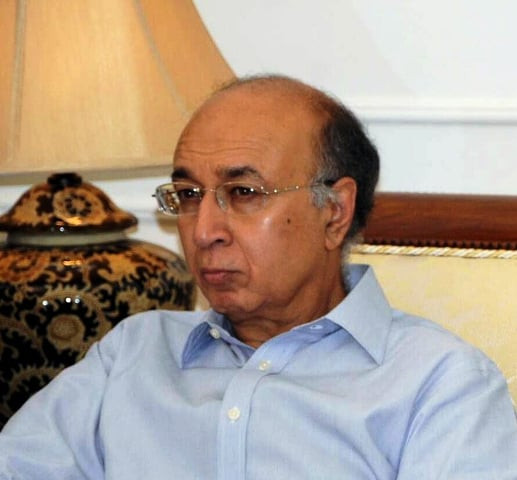Another governor falls
This is the third major departure from the govt’s economic team in two years.

Another governor falls
We may never know the real reason why State Bank Governor Shahid Kardar resigned. Speculation is rife regarding swap agreements with China and Turkey, regarding loan write-offs and regulatory approvals for dubious ventures and bank branches.
At the end of the day, the cause is just as likely to be purely personal – somebody who did not like the way the governor talked to him in a particular meeting, somebody who had a direct line to the man on the hill, or something equally trite and petty. What we do know is that those who work with him, and those he interacted with as late as Tuesday, had no inkling of any difficulties.
But in a few weeks, it won’t matter. Fact is, this is the third major departure from the government’s economic team in two years.
To get a sense of what could have prompted the decision, step into Kardar’s shoes for a brief moment. As governor of the State Bank, you are one of the country’s key stakeholders in economic policy. The debris of economic mismanagement will always inevitably wash up on your doorstep. Politically motivated pressure, to oblige this or that party with this or that favor, follows.
When you’re holding the dying body of policy in your hands, dying through neglect, how does it feel to have the dragon of politics breathing hard and fast down your neck?
You need not look far to get a sense of what type of debris washed up on Kardar’s doorstep. Just read the State Bank’s monetary policy announcements over the course of his tenure.
The last such announcement pointed out that rising government indebtedness had pushed the economy into “a low-growth, high-inflation equilibrium.” In fact, throughout his tenure, controlling government indebtedness remained a high priority for the governor, a theme that echoes throughout the announcements, and a theme he highlighted in an important speech at the Federation of Pakistan Chambers of Commerce and Industry, on the roots of inflation.
Rising debt levels were not only fuelling inflation but also driving away private investment, ensuring that growth could not revive. “The solution to these outcomes rests with wide-ranging fiscal reforms,” warned the State Bank.
Only the government, however, could ensure that. More specifically, the finance team needed to step up to the plate and show some muscle, some gravitas, some brass of its own and persuade its profligate cabinet colleagues to show a little responsibility towards the country’s fiscal health.
“The government is mindful of fiscal pressures and has expressed its resolve to address these issues, especially the containment of the fiscal deficit,” noted the report in a nod to the governor’s friends in Q block, who are undoubtedly sympathetic to these words even if they are impotent to do anything about them. But the State Bank cannot brook appeals to impotence – the consequences of dithering on the fiscal front are too grave – and the announcement ended on this note: “The budget for FY12 is expected to reflect this commitment.”
The budget was announced two weeks later and nobody was convinced that it had made any serious or credible effort to control spending and increase revenues.
It is this dissonance in our government that has led to three high profile resignations in two years, this sense that vital policy issues are being ignored while private vested matters are pursued vigorously and aggressively. It is the manner in which decision making in economic matters revolves around the whims of a small number of individuals that creates room for a connected individual to create a misunderstanding, stoke a grievance, or otherwise exploit a difference of opinion towards a purely private benefit.
In days to come, much effort will go into searching for the single straw that broke the camels back in the matter of Kardar’s resignation. The closer we look at the affair, the finer the straws will appear. But the larger canvas of disregard for the country’s problems and the defective state of decision making in the government will remain the context for this resignation, as it was for those that came before, and undoubtedly for those that are yet to come.
Published in The Express Tribune, July 17th, 2011.



















COMMENTS
Comments are moderated and generally will be posted if they are on-topic and not abusive.
For more information, please see our Comments FAQ